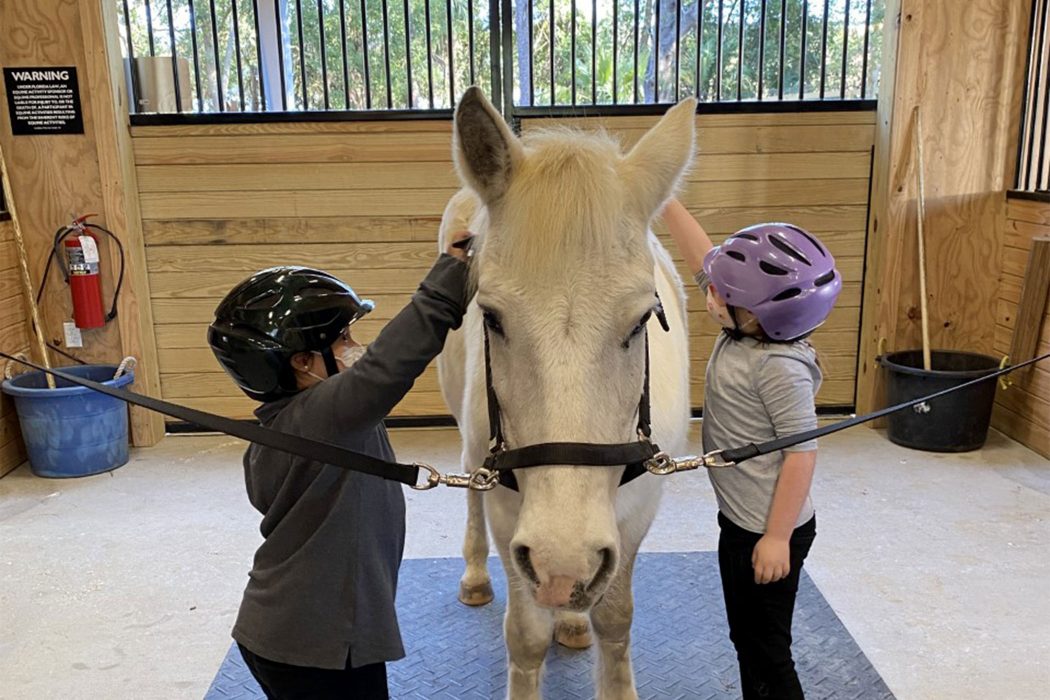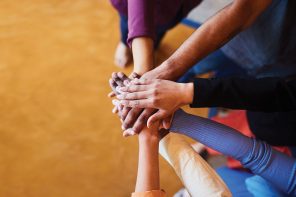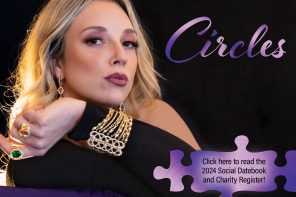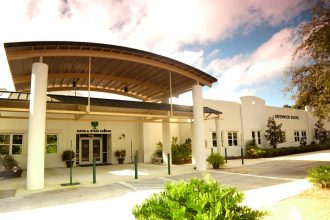In January 2020, Sally Hazelip, head of the North Florida School for Special Education (NFSSE), was gearing up to welcome students to a new state-of-the-art campus.
Situated on eight acres on Mill Creek Road, the new school features an equestrian center, full-size gymnasium and urban farm. The students spent most of January and February settling into the new facility and establishing daily routines.
In March, COVID-19 brought life as we know it to a screeching halt, and all this changed.
As part of the effort to curb the global pandemic, NFSSE — along with nearly all schools in the country – had to temporarily close its doors. And along with the rest of the world, the school was faced with discovering effective and creative ways to navigate a pandemic that required newly coined mandates such as “social distancing,” “wearing masks,” and “remote learning.”
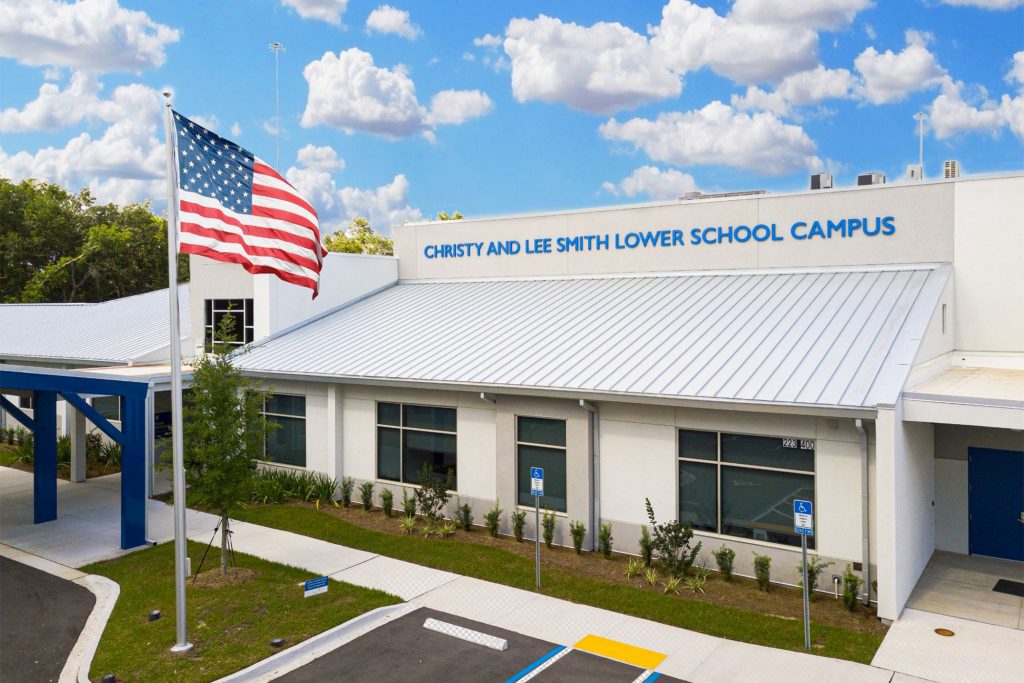
For NFSSE, utilizing flexible learning methods was not a new idea. Established in 1992, the school provides services and programs that support individuals with intellectual and developmental differences. Students range in ages from 6 in the lower school to 40 plus in its postgraduate program. They receive an education tailored to the specific ways they learn best, and they can receive a variety of services, including occupational, physical and speech therapy.
Once everything began shutting down, Hazelip said her first priority was maintaining the connection between students and teachers. Virtual learning, she knew, could provide the day-to-day communications students required.
“When everything shut down, we were able to get all our teachers on the same page in terms of what they were going to teach the students. We tried to keep [online learning] — and I hesitate to use the word normal — but as normal as we possibly could. The most important thing was that our teachers connected with the students.”
Like NFSSE, all learning institutions in Duval County discovered during the early days of the pandemic that providing a learning environment for students – and even resources for the public at large — required a new way of thinking.
Kari Bates, CEO and President of the Arc of Jacksonville, said her first thought was, “How can I keep everyone safe?” Once she became aware of the shutdown and social distancing mandates, Bates became concerned as to how this type of isolation might affect the individuals who rely on the Arc. “Pretty quickly, even in those early days, I was aware of the mental health challenges that were going to come from the isolation,” she said.
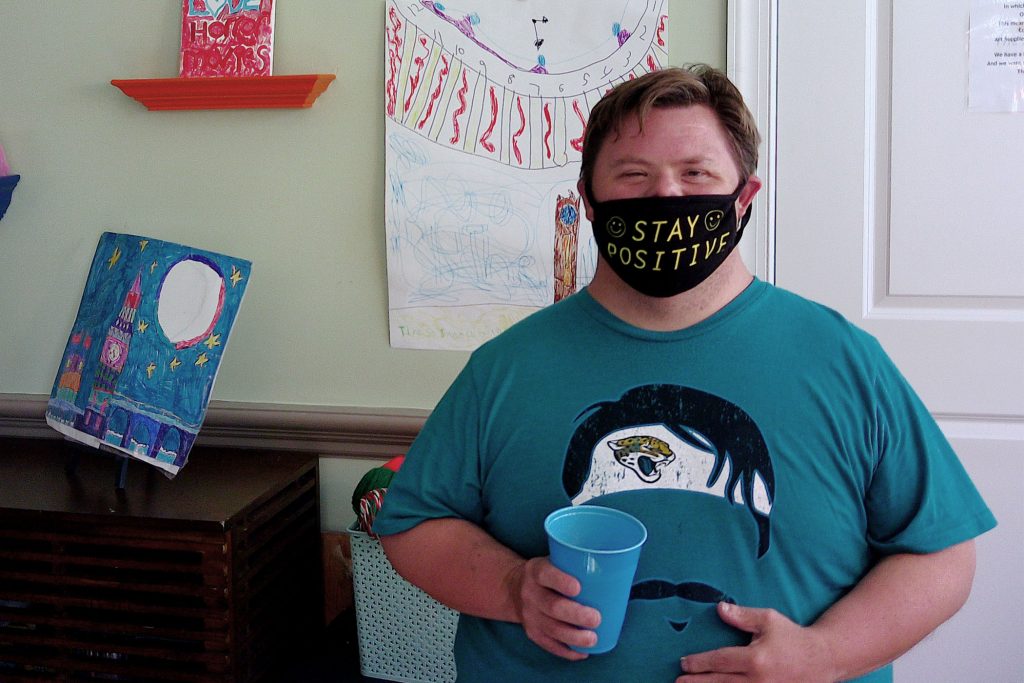
According to its website, “The Arc Jacksonville serves and advocates for individuals with intellectual and developmental differences to achieve their full potential and to participate in community life.” These services include helping find and train for employment, offering recreational activities, and providing support for independent living. The Arc even has its own Village, an apartment-style neighborhood geared toward helping its residents live on their own and integrate into the community.
To combat any negative mental health challenges brought on by stay-at-home orders, the Arc provided online health care. “We took our mental health services, which are traditionally offered within our brick-and-mortar programs, virtual. Therapists were able to do mental health counseling online.”
Brooks Rehabilitation, a Jacksonville-based rehab group with offices throughout the city, also fully embraced virtual healthcare. The facility continued to see patients throughout the pandemic by implementing temperature scans and requiring masks, but telehealth was one of the most effective tools for Brooks to stay connected. Megan Hyman, Pediatric Recreation Program manager, explained that this uncharted territory offered doctors, clinicians and therapists an opportunity to think outside the box and get creative. “The virtual environment was new and unpredictable for most of us at the beginning of the pandemic. We worked with our participants to identify meaningful and fun activities. Families were open to trying new virtual opportunities to support their children, and we responded with classes and experiences available at times convenient for them. I saw participants’ siblings and families joining virtual classes from their homes, cars, bedrooms and hospital beds.”
Brooks also manages University Crossing, its skilled nursing facility, serving patients who require both short and long-term rehabilitation. University Crossing was tasked with protecting residents from the virus, while also keeping them connected to family and friends.
Bob Kuhn, a patient at the facility, had nothing but praise for how Brooks handled the situation. “The pandemic presented challenges for everyone, but those of us who are disabled face additional, serious concerns about our health and well-being…Brooks has consistently mandated masks in all facilities, which has undoubtedly reduced infections and saved lives. Brooks has made smart, common-sense decisions on visitation policies for facilities, based on available COVID data and in-house testing.” Kuhn added that Brooks has made vaccinations easy and convenient for staff and residents through scheduled clinics and ongoing availability.
While the physical symptoms of COVID can be severe, social isolation and its effects on mental health can be just as threatening. Pine Castle is an organization that provides programs, services and education to help individuals with intellectual differences live more independent lives. CEO Lori Ann Whittington recognized early on that engaging participants and providing them with a range of flexible opportunities to stay busy was vital during the stay-at-home order. “The real danger was the isolation. We did a lot of things like telehealth mental health classes and virtual day training classes as much as possible to keep them engaged. We also made sure to call and check on them on a regular basis.”
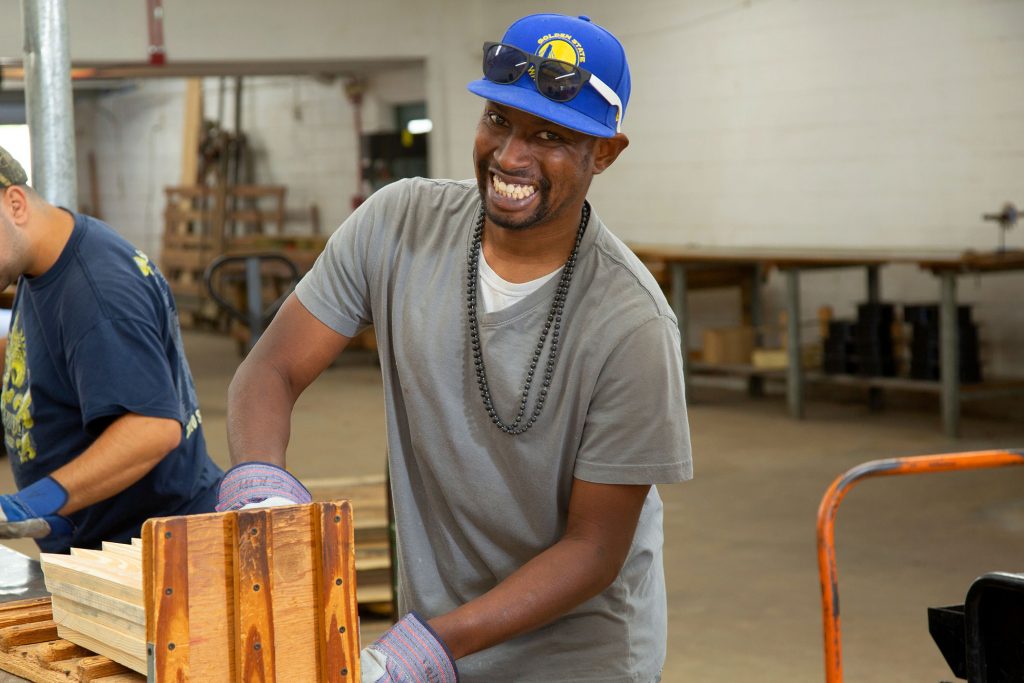
Whittington also realized that caregivers were facing challenges. “Their families also were impacted. These caregivers had to care for loved ones during the day when they were supposed to be working. They navigated the same situation that many school parents navigated – trying to do their own jobs from home while caring for someone with serious differences.”
Whittington said Pine Castle took extra measures to provide aid not only to its participants but also to parents and caregivers. “We were thinking outside the box. We sent home packets of worksheets on a monthly basis to participants, to give them work at home and to help maintain their skills. This also helped parents and caregivers provide activities.”
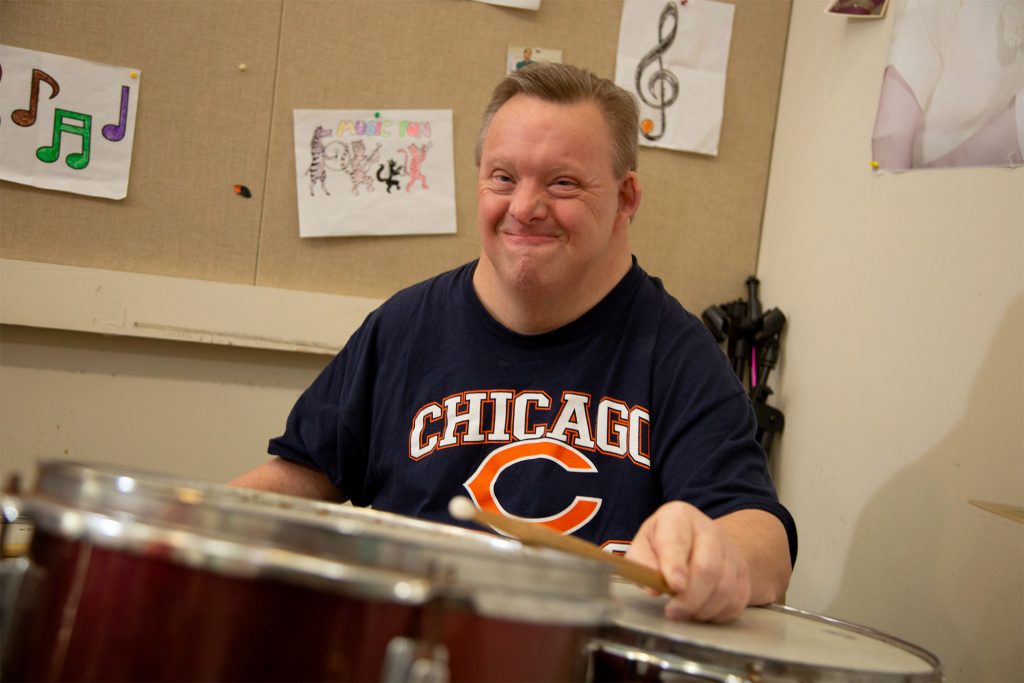
Whittington added that while the “lockdown” was disheartening, the organization leveraged the time to complete much-needed renovations to its campus. “We renovated every single workshop with new lighting, furniture, amenities and autism friendly spaces.”
Organizations like the Center for Independent Living (CIL) didn’t skip a beat when the pandemic started. CIL provides a range of services and “empowers people with disabilities to achieve their goals for independence.” This includes supplying durable medical equipment (DME), such as motorized wheelchairs, in a timely manner to those recovering from surgeries or hospital visits. The pandemic didn’t curb the need for DME, so CIL had to quickly figure out ways to safely deliver this life-changing equipment.
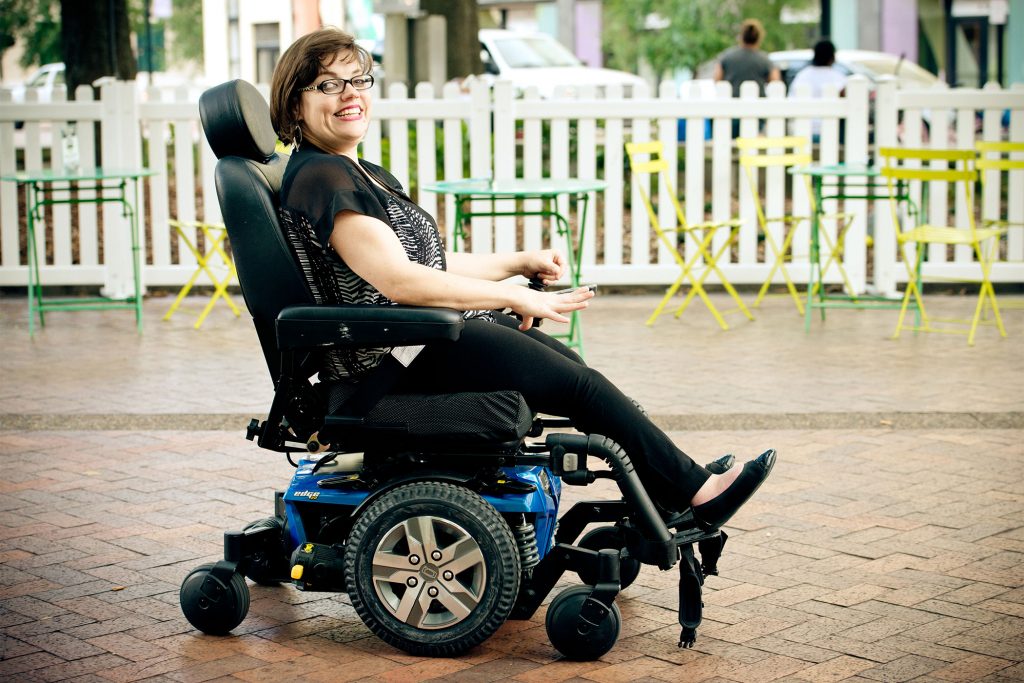
Executive Director Tyler Morris explained how CIL was able to continue loaning DME with a little boost from the community. “We were thankful to [acquire] a wheelchair accessible vehicle, donated to us by Farah & Farah. We were able to immediately receive donations and pickup deliveries for medical equipment. People did not have to wait through the pandemic for medical equipment.”
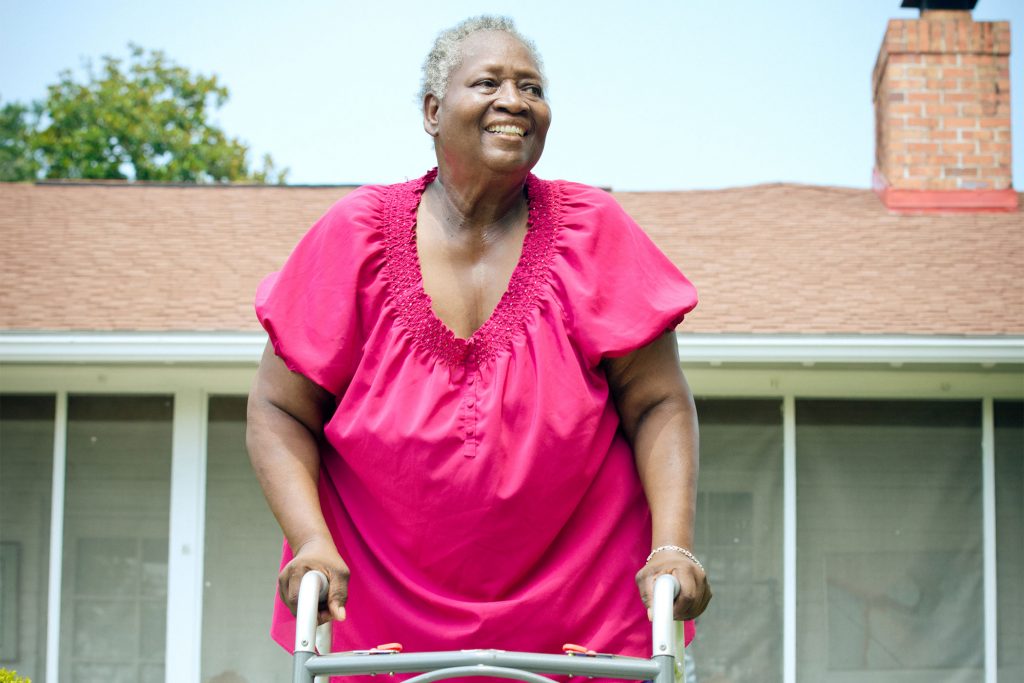
While COVID has disrupted life as we know it, NFSSE’s Hazelip sees a silver lining in these changes and challenges. “I pick a word out every January — the word with the most impact from the previous year. During COVID, it was ‘perspective.’ It was a really interesting year to keep saying, ‘Okay. Help me have perspective on what this is doing for the school and for our kids.’ We banded together and we got through it.”
For Bates, this whole experience has reaffirmed her affection and respect for individuals with intellectual differences. “We forget how much they overcome on a daily basis, whether it be physical or battling stigmas. They are just so resilient.”
Morris agrees with this assessment and hopes that it continues to open doors for this incredible community. “Disability is the only minority group that any of us can become a part of, and are likely to, as we age. And disability is part of all of us in some form or fashion, whether it’s a coworker, family member or ourselves. People are motivated by causes that directly impact them.”
Morris also feels these individuals deserve to be recognized for what they offer our city. “It’s important to understand that diversity includes disability. There is a large group of individuals with disabilities in Northeast Florida who contribute every day. They are not just looking for support; they provide support to our community.”

